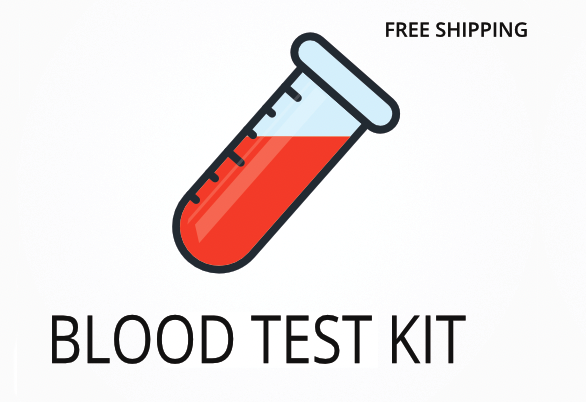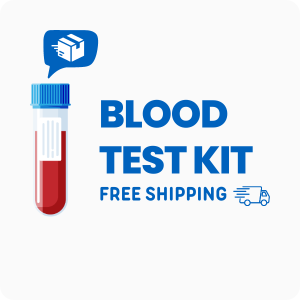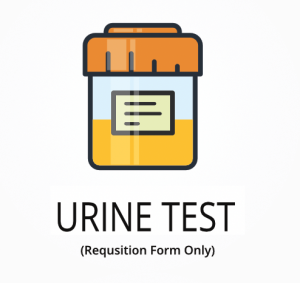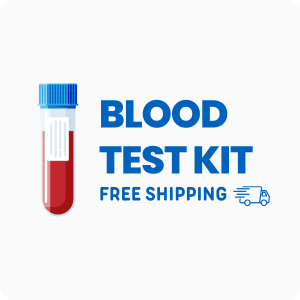Ordering the ImmunoBlot Super Panel | IGeneX
The ImmunoBlot Super Panel from IGeneX helps detect antibodies linked to Lyme disease and other tick-borne infections, including Bartonella and Babesia. This test is often chosen when symptoms like joint pain, memory problems, or skin rashes are present, especially if other tests have not given clear answers. Interestingly, this panel can also identify infections that may not show up on standard Lyme tests, making it useful for people with ongoing, unexplained symptoms.
Ordering the ImmunoBlot Super Panel can help you:
- Identify multiple tick-borne infections in one test
- Detect early and late-stage Lyme disease
- Find out if you have co-infections like Bartonella or Babesia
- Support your doctor in choosing the right treatment plan
- Reduce the need for repeat testing by covering several infections at once
People who have ongoing symptoms such as fatigue, joint pain, or brain fog after a possible tick bite may benefit from this test. For example, someone who has been feeling tired and achy for months after a camping trip, but whose regular blood tests have not found a cause, might find answers with this panel.
Ordering may also be helpful if you:
- Have a history of tick bites and new or changing symptoms
- Experience neurological issues like dizziness or memory loss
- Notice skin changes or rashes that do not go away
- Have digestive problems that started after outdoor activities
- Recently developed heart palpitations or swollen lymph nodes without a clear reason
This test can help pinpoint the cause of symptoms by checking for several infections at once, which can lead to more targeted treatment. Delaying this test could mean missing the chance to start the right treatment sooner, which may allow symptoms to continue or worsen.
Preparing for Tick-Borne Infection Testing
Fasting is not required before taking the ImmunoBlot Super Panel, so you can eat and drink as usual before your sample is collected. Always follow any instructions or special guidance your doctor or healthcare provider gives you to make sure your sample is collected correctly and your results are as useful as possible.
Labs Included When Ordering Your ImmunoBlot Super Panel | IGeneX
| Test Name | Reference Range | What the Test Shows | Low and High Levels of the Test |
|---|---|---|---|
| Lyme ImmunoBlot IgM | Negative | Detects early immune response to Borrelia burgdorferi, the bacteria that causes Lyme disease. Useful for identifying recent or active infection. | High levels mean your body is fighting a recent or current Lyme infection.
Low levels mean there is no sign of a recent Lyme infection. |
| Lyme ImmunoBlot IgG | Negative | Shows if your immune system has responded to Lyme bacteria over a longer period, helping to identify past or ongoing infection. | High levels mean you have had Lyme disease for a while or have a long-term infection.
Low levels mean there is no sign of a long-term Lyme infection. |
| Lyme Speciation | Negative | Identifies the specific type of Borrelia bacteria present, which can help guide treatment choices. | High levels mean a specific Borrelia species is present.
Low levels mean no Borrelia species were detected. |
| TBRF ImmunoBlot IgM | Negative | Detects early immune response to tick-borne relapsing fever (TBRF) Borrelia species, which can cause recurring fevers and other symptoms. | High levels mean your body is fighting a recent or current TBRF infection.
Low levels mean there is no sign of a recent TBRF infection. |
| TBRF ImmunoBlot IgG | Negative | Shows if you have had a longer-term immune response to TBRF Borrelia, helping to identify past or ongoing infection. | High levels mean you have had TBRF for a while or have a long-term infection.
Low levels mean there is no sign of a long-term TBRF infection. |
| TBRF Speciation | Negative | Identifies the specific type of TBRF Borrelia bacteria, which can help with targeted treatment. | High levels mean a specific TBRF Borrelia species is present.
Low levels mean no TBRF Borrelia species were detected. |
| Bartonella ImmunoBlot IgM | Negative | Detects early immune response to Bartonella, a bacteria that can cause neurological and skin symptoms. | High levels mean your body is fighting a recent or current Bartonella infection.
Low levels mean there is no sign of a recent Bartonella infection. |
| Bartonella ImmunoBlot IgG | Negative | Shows if you have had a longer-term immune response to Bartonella, which can help identify ongoing or past infection. | High levels mean you have had Bartonella for a while or have a long-term infection.
Low levels mean there is no sign of a long-term Bartonella infection. |
| Babesia ImmunoBlot IgM | Negative | Detects early immune response to Babesia, a parasite that can cause flu-like symptoms and anemia. | High levels mean your body is fighting a recent or current Babesia infection.
Low levels mean there is no sign of a recent Babesia infection. |
| Babesia ImmunoBlot IgG | Negative | Shows if you have had a longer-term immune response to Babesia, which can help identify ongoing or past infection. | High levels mean you have had Babesia for a while or have a long-term infection.
Low levels mean there is no sign of a long-term Babesia infection. |
| Lyme Screen Immunoassay IgM | Negative | Screens for early immune response to Lyme bacteria, helping to catch infection soon after exposure. | High levels mean your body is fighting a recent Lyme infection.
Low levels mean there is no sign of a recent Lyme infection. |
| Lyme Screen Immunoassay IgG | Negative | Screens for longer-term immune response to Lyme bacteria, helping to identify ongoing or past infection. | High levels mean you have had Lyme disease for a while or have a long-term infection.
Low levels mean there is no sign of a long-term Lyme infection. |
Reference ranges may change slightly if the lab updates their methods or standards.
ImmunoBlot Super Panel FAQ
Is there ImmunoBlot Super Panel testing near me?
This is a test kit that you can collect locally, and you can check the draw location link at the top of the page for nearby options. For people dealing with symptoms like joint pain or brain fog, having a convenient collection site makes it easier to get tested quickly and start finding answers.
How do I interpret the test results?
While your treating physician should review your results, we also offer a one-on-one test results review with our clinical team to help you understand your results and next steps.
What is the cost of the test?
The price you see includes standard shipping to you and back to the lab, but draw fees may apply. Ordering this test can help you get answers about symptoms like fatigue or memory loss, which may help you and your doctor start treatment sooner.
How often should I retest?
Retesting is usually recommended every 3 to 6 months if symptoms continue or if you are being treated for a tick-borne infection. This helps track changes in your immune response and supports your doctor in adjusting your care as needed.
How accurate is the test?
The ImmunoBlot Super Panel uses advanced immunoblotting to detect antibodies with a specificity of 98% and a sensitivity of 90%. TrueHealthLabs.com partners with CLIA-certified and CAP-certified laboratories to uphold rigorous testing standards for dependable results.
Important Notes
Disclaimer: This information is for educational purposes only and not intended as medical advice. Consult your healthcare provider for personalized guidance.
Medical Review Board
Reviewed by Jeff Donohue M.D. from Body Logic and Brady Hurst DC, CCCN. Written by True Health Lab’s team of editorial health contributors.
Disclaimer: This information is for educational purposes only and not intended as medical advice. Consult your healthcare provider for personalized guidance.
Why Customers Trust True Health Labs – What People are saying
Also rated 4.6 out of 5 based on 3452 ShopperApproved reviews- See all TrueHealthLabs.com reviews.









